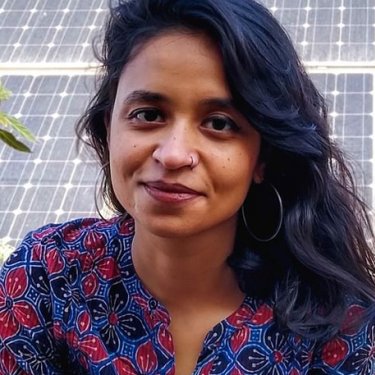Indian cartoonist could be jailed for cartoons about India’s supreme court

Following last month’s Indian supreme court decision to authorize a “contempt” case against a New Delhi-based cartoonist over a series of cartoons satirising the court, Reporters Without Borders (RSF) urges the judges in charge of the case to respect the right to free speech as proclaimed in India’s constitution and to dismiss these absurd proceedings.
The supreme court gave the go-ahead on 18 December for contempt of court proceedings against Rachita Taneja in connection with three cartoons on her @SanitaryPanels Twitter page, where she has been commenting on Indian politics for the past six years.
The proceedings are the result of a complaint filed by Aditya Kashyap, a member of the ruling Bharatiya Janata Party (BJP)’s student wing, claiming that Taneja had “shaken the public trust and confidence in the judicial system of our constitutional democracy by directly attacking and making insinuations against the Supreme Court of India.”
Taneja has been asked to submit a written defence which the court will examine on 29 January. If found guilty, she could be sentenced to up to six months in prison.
“We call on the supreme court’s judges to drop the absurd charges they have allowed to be brought against Rachita Taneja, who just exercised her right to freedom of expression as guaranteed by article 19 of the 1950 constitution,” said Daniel Bastard, the head of RSF’s Asia-Pacific desk. “It is very shocking to see India’s highest court stoop to harassing a cartoonist on the pretext of a spurious contempt of court case when the cartoons were completely inoffensive.”
Innocuous
Posted on 7 August, 11 November and 12 November respectively, the three cartoons are very innocuous. The first parodies an exchange of favours between a judge and Prime Minister Narendra Modi. The second shows the flag of Rashtriya Swayamsevak Sangh – the Hindu nationalist militia of which the BJP is a political offshoot – flying over the supreme court building. And the third refers to a supreme court decision concerning a journalist with the pro-BJP Republic TV channel.
Contempt of court proceedings are increasingly used to silence journalists and commentators who refer critically to the judicial system. Those targeted have included the political commentator and comedian Kunal Kamra, who was accused of contempt in December over a series of satirical tweets about the supreme court.
As RSF reported at the time, Shillong Times newspaper editor Patricia Mukhim and publisher Shobha Chaudhuri were each fined 200,000 rupees (2,600 euros) in March 2019 for contempt of court because of an article drawing attention to a court directive on benefits for retired judges in Meghalaya, the northeastern state where they are based.
India is ranked 142nd out of 180 countries in RSF's 2020 World Press Freedom Index.



